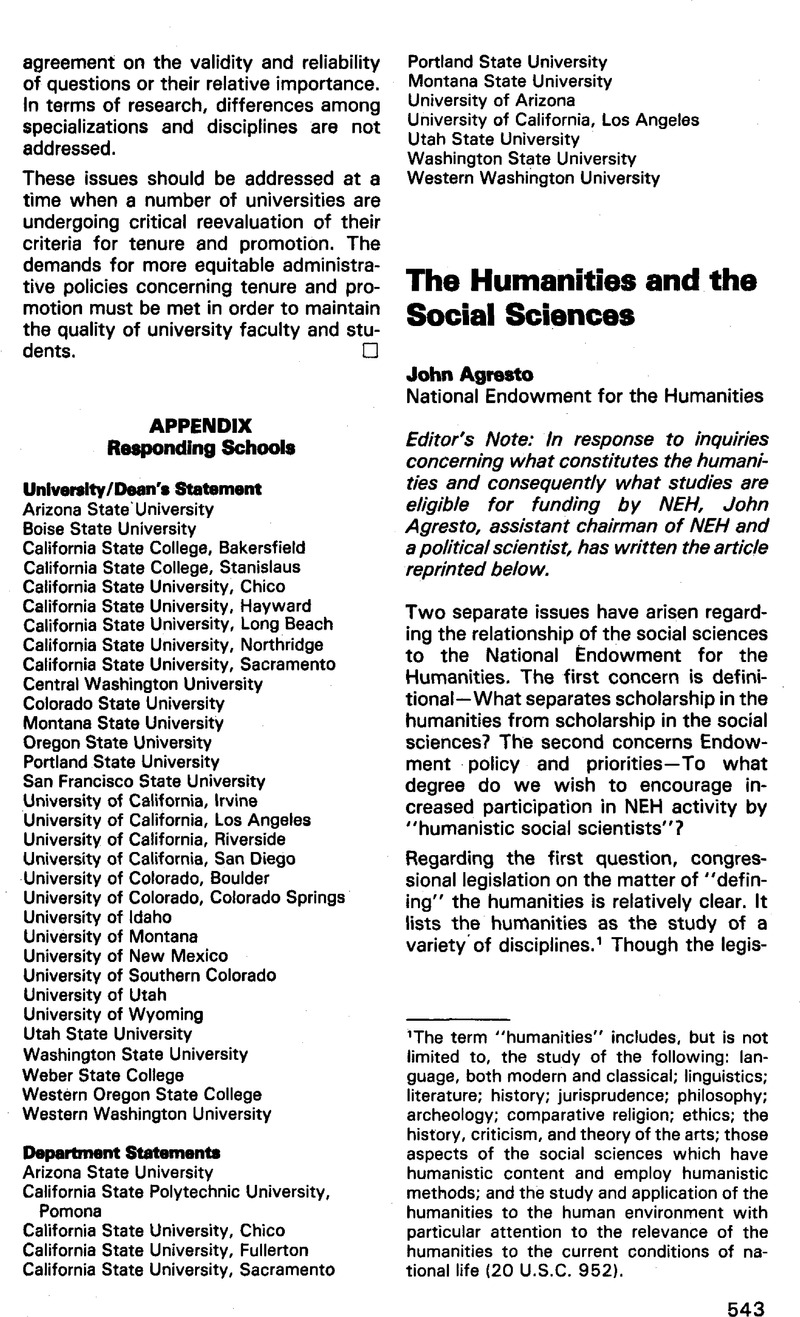Article contents
The Humanities and the Social Sciences
Published online by Cambridge University Press: 25 November 2022
Abstract

Information
- Type
- Other
- Information
- Copyright
- Copyright © The American Political Science Association 1983
References
1 The term “humanities” includes, but is not limited to, the study of the following: language, both modern and classical; linguistics; literature; history; jurisprudence; philosophy; archeology; comparative religion; ethics; the history, criticism, and theory of the arts; those aspects of the social sciences which have humanistic content and employ humanistic methods; and the study and application of the humanities to the human environment with particular attention to the relevance of the humanities to the current conditions of national life (20 U.S.C. 952).
2 Were I to suggest a non-discipline-based calculus by which to distinguish the humanities from the core of social sciences it would rest not upon “values” or “empiricism” but on the distinctive way they each understand causality and human agency. Insofar as the social sciences explain human phenomena and human events as “caused,” fully explainable without reference to reason, choice, or will, then they stand apart from the humanities. If instead of reason we are given “causes” as the explanatory vehicle, if we are given testable models rather than arguments, then we have truly made a “social science” of human affairs and have left the humanities as interesting but fundamentally irrelevant modes of knowing. Yet, since I also recognize the limits of this touchstone as a rule for separating the two fields, I'll leave it as a footnote and not give it as a conclusion.
- 2
- Cited by

